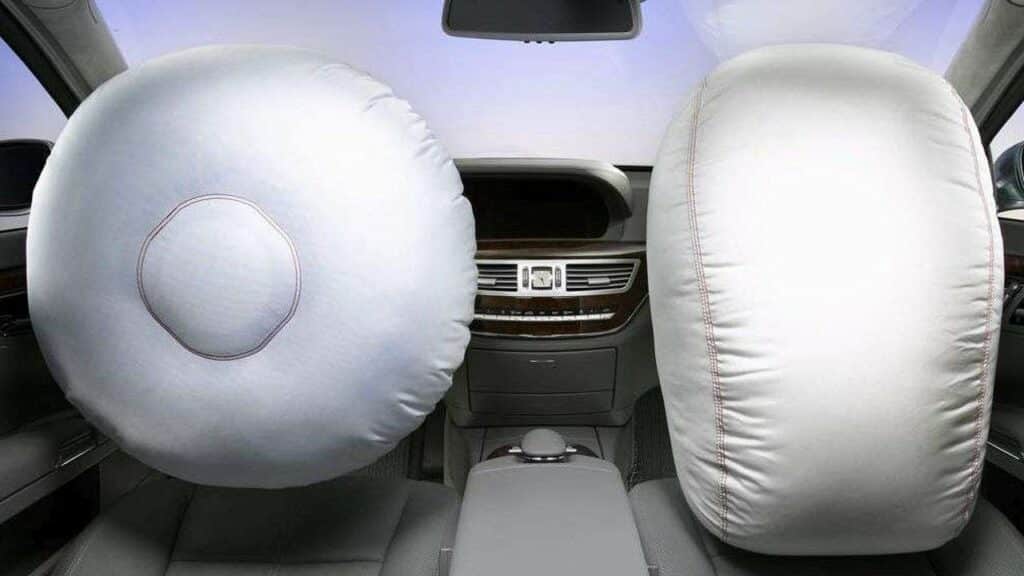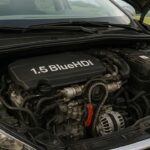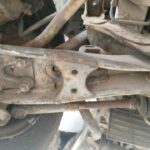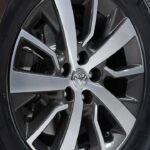This week’s recalls:
– Audi, BMW, Škoda – Takata airbags
– Mercedes-Benz, MG – fire risk
– Isuzu D-Max – steering
12 recalls for 40 models of eight makes were announced via Rapex in the 15th week of 2023. One more recall was announced by the German Motor Vehicle Authority (KBA).
Three recalls have been announced this week by Audi, two by Mercedes-Benz and Nissan, while BMW, Fiat, Isuzu, MG Motors and Škoda Auto have one recall each in Rapex – see table at the end of the article. Through the KBA, the Ford is recalling.
- Isn’t that your car? See also the recent recalls of other makes.
We reported about the recall for several Skoda models due to Takata airbags a week ago when it appeared in the database of the German KBA. You can read the details in the article Skoda recalls 580,000 vehicles for driver’s airbag.
This week, we’ve already got it in Rapex, along with a recall for nearly 850,000 older Audi A4 and A6 model series vehicles in various variants and versions, as well as 295,900 Audi A5 and Q5 vehicles and nearly 25,000 Audi TT and R8 sports cars.
BMW is also recalling 725,787 cars of the 1, 2, 3, 4, 5, 6, X1, X3, X4, X5, X6, M2, M3, M4, X5M and X6M model series from 2012 – 2014 due to airbags – see the table at the end of the article.
Due to fire risk, Mercedes-Benz recalls 1,744 GLC SUVs from the first half of 2022 and 171,463 larger GLE and GLSGLS from 2018-2021.
Nissan also has two recalls for its Juke and Micra models.
The KBA Recalls
A recall for the Ford Kuga appeared in the KBA database last week. Nearly 1,000 cars built in 2022 may have been fitted with defective tyres and are at risk of a sudden loss of air.
We also recently published an article Dekra: These are the most and least reliable cars in 100,000 km tests.
Details on this week’s Rapex recalls can be found in the table below.
- How satisfied are you with your car? Let us know! It’s anonymous, and no registration is required. Would you recommend your car to a friend?
- Post an Owners’ Review Now
Rapex Recalls announced in the 15th week of 2023
| Make, Model (years) | Problem |
|---|---|
| Audi A4 (2004 – 2011) | The airbag may deteriorate over time, and if deployed, excessive internal pressure may cause the inflator body to burst. |
| Audi S4 (2004 – 2011) | The airbag may deteriorate over time, and if deployed, excessive internal pressure may cause the inflator body to burst. |
| Audi A5 (2008 – 2012) | The airbag may deteriorate over time, and if deployed, excessive internal pressure may cause the inflator body to burst. |
| Audi Q5 (2008 – 2012) | The airbag may deteriorate over time, and if deployed, excessive internal pressure may cause the inflator body to burst. |
| Audi A6 (2004 – 2011) | The airbag may deteriorate over time, and if deployed, excessive internal pressure may cause the inflator body to burst. |
| Audi S6 (2004 – 2011) | The airbag may deteriorate over time, and if deployed, excessive internal pressure may cause the inflator body to burst. |
| Audi RS6 (2004 – 2011) | The airbag may deteriorate over time, and if deployed, excessive internal pressure may cause the inflator body to burst. |
| Audi R8 (2014 – 2017) | The airbag may deteriorate over time, and if deployed, excessive internal pressure may cause the inflator body to burst. |
| Audi TT (2014 – 2017) | The airbag may deteriorate over time, and if deployed, excessive internal pressure may cause the inflator body to burst. |
| BMW 1 Series (2012 – 2014) | The airbag may deteriorate over time, and if deployed, excessive internal pressure may cause the inflator body to burst. |
| BMW 2 Series (2014) | The airbag may deteriorate over time, and if deployed, excessive internal pressure may cause the inflator body to burst. |
| BMW M2 (2014) | The airbag may deteriorate over time, and if deployed, excessive internal pressure may cause the inflator body to burst. |
| BMW 2 Active Tourer (2014) | The airbag may deteriorate over time, and if deployed, excessive internal pressure may cause the inflator body to burst. |
| BMW 1 Series (2012 – 2014) | The airbag may deteriorate over time, and if deployed, excessive internal pressure may cause the inflator body to burst. |
| BMW M3 (2012 – 2014) | The airbag may deteriorate over time, and if deployed, excessive internal pressure may cause the inflator body to burst. |
| BMW 4 Series (2014) | The airbag may deteriorate over time, and if deployed, excessive internal pressure may cause the inflator body to burst. |
| BMW M4 (2014) | The airbag may deteriorate over time, and if deployed, excessive internal pressure may cause the inflator body to burst. |
| BMW 5 Series (2012 – 2014) | The airbag may deteriorate over time, and if deployed, excessive internal pressure may cause the inflator body to burst. |
| BMW 6 Series (2012 – 2014) | The airbag may deteriorate over time, and if deployed, excessive internal pressure may cause the inflator body to burst. |
| BMW X1 (2012 – 2014) | The airbag may deteriorate over time, and if deployed, excessive internal pressure may cause the inflator body to burst. |
| BMW X3 (2012 – 2014) | The airbag may deteriorate over time, and if deployed, excessive internal pressure may cause the inflator body to burst. |
| BMW X4 (2014) | The airbag may deteriorate over time, and if deployed, excessive internal pressure may cause the inflator body to burst. |
| BMW X5 (2012 – 2014) | The airbag may deteriorate over time, and if deployed, excessive internal pressure may cause the inflator body to burst. |
| BMW X6 (2012 – 2014) | The airbag may deteriorate over time, and if deployed, excessive internal pressure may cause the inflator body to burst. |
| Fiat Doblo (2022) | The fuel return line may leak fuel, creating a risk of fire in the engine compartment. |
| Isuzu D-Max (2020 – 2022) | A faulty tightening torque on the connecting bolt of the lower steering column can lead to failure of steering. |
| Mercedes-Benz GLC (2022) | The B pillar wiring harness may be damaged, which can lead to a short circuit that causes a fire. |
| Mercedes-Benz GLE (2018 – 2021) | Incorrectly routed condensation drain hoses can cause moisture to enter the passenger compartment. |
| Mercedes-Benz GLS (2018 – 2021) | Incorrectly routed condensation drain hoses can cause moisture to enter the passenger compartment. |
| MG eHS (2022) | The earthing cable is not properly attached to the heating element. |
| Nissan Juke HEV (2022) | If the accelerator and brake pedals are pressed simultaneously, it causes a hybrid electric vehicle control (HEVC) reset. |
| Nissan Micra (2016 – 2021) | The driver’s seat may be faulty, which can cause the seat belt anchorages not to function as intended. |
| Škoda Citigo (2012 – 2017) | The airbag may deteriorate over time, and if deployed, excessive internal pressure may cause the inflator body to burst. |
| Škoda Fabia (2012 – 2017) | The airbag may deteriorate over time, and if deployed, excessive internal pressure may cause the inflator body to burst. |
| Škoda Kodiaq (2016 – 2017) | The airbag may deteriorate over time, and if deployed, excessive internal pressure may cause the inflator body to burst. |
| Škoda Octavia III (2012 – 2017) | The airbag may deteriorate over time, and if deployed, excessive internal pressure may cause the inflator body to burst. |
| Škoda Rapid (2012 – 2017) | The airbag may deteriorate over time, and if deployed, excessive internal pressure may cause the inflator body to burst. |
| Škoda Roomster (2012 – 2015) | The airbag may deteriorate over time, and if deployed, excessive internal pressure may cause the inflator body to burst. |
| Škoda Superb (2012 – 2017) | The airbag may deteriorate over time, and if deployed, excessive internal pressure may cause the inflator body to burst. |
| Škoda Yeti (2012 – 2017) | The airbag may deteriorate over time, and if deployed, excessive internal pressure may cause the inflator body to burst. |
Where now?











Currently 5178 Recalls